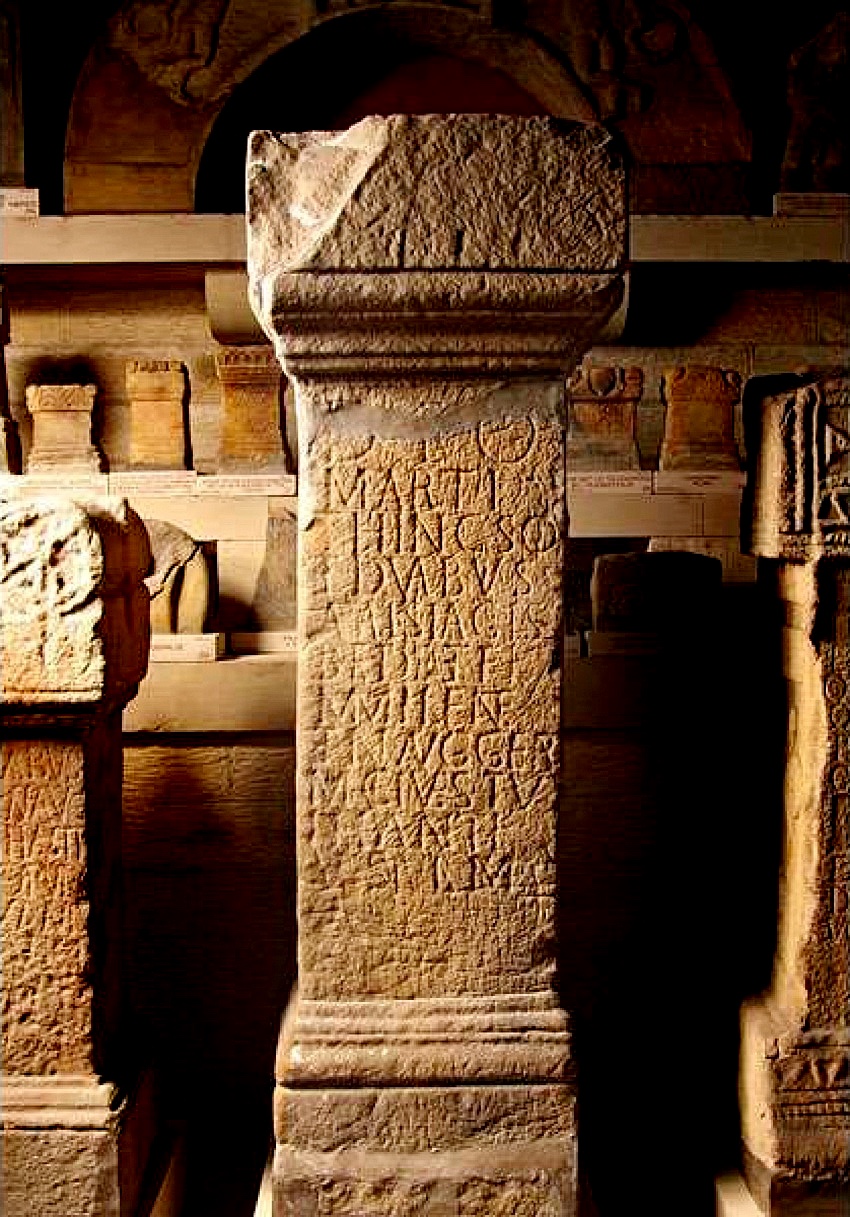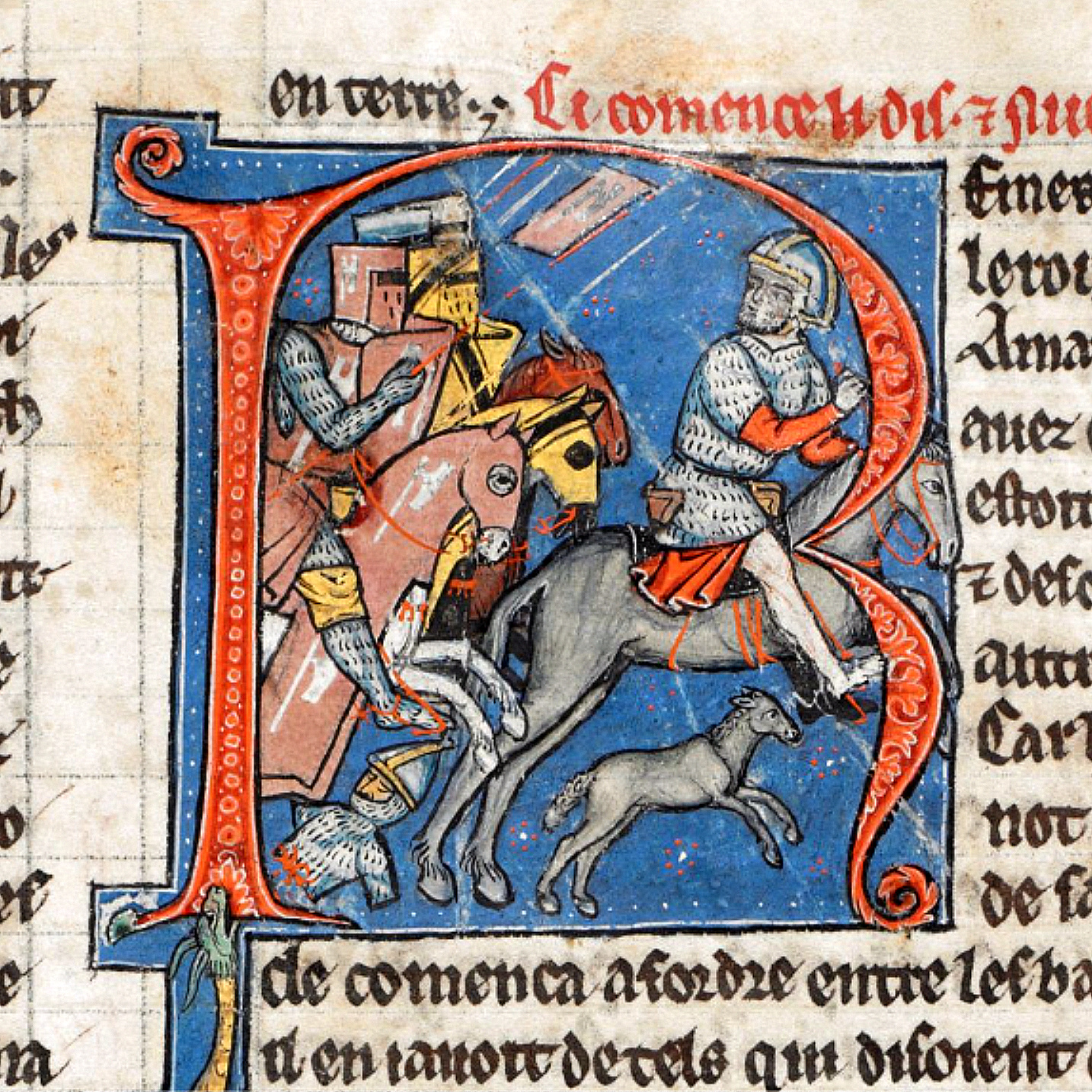 During the height of the Roman occupation of Britain, Britannia was as Roman as anywhere else in the empire: filled with flourishing walled market towns distributing goods to and from all the other parts of the Mediterranean world, the culture a mix of Roman and local, all gods welcome. This was the secret sauce in the Roman recipe for empire, everybody got to keep their deities. Delicious. Some gods were adopted by the soldiers and traveling sales teams who moved the most from place to place, others got yoked to a Roman deity, two gods pulling the weight for one: interpretatio Romana Tacitus called this practice whilst naming a pair of gods living in a sacred grove somewhere along the Oder River between Germany and Poland. According to the Roman interpretation these deities were Castor and Pollux but maybe they were some version of Nerþus who was maybe Ing who maybe became Freyr and Freya. It’s gods all the way down, but this game of telephone is played without the phone. We can’t know what wasn’t recorded, not these kinds of details, and most of us will speculate only so far.
During the height of the Roman occupation of Britain, Britannia was as Roman as anywhere else in the empire: filled with flourishing walled market towns distributing goods to and from all the other parts of the Mediterranean world, the culture a mix of Roman and local, all gods welcome. This was the secret sauce in the Roman recipe for empire, everybody got to keep their deities. Delicious. Some gods were adopted by the soldiers and traveling sales teams who moved the most from place to place, others got yoked to a Roman deity, two gods pulling the weight for one: interpretatio Romana Tacitus called this practice whilst naming a pair of gods living in a sacred grove somewhere along the Oder River between Germany and Poland. According to the Roman interpretation these deities were Castor and Pollux but maybe they were some version of Nerþus who was maybe Ing who maybe became Freyr and Freya. It’s gods all the way down, but this game of telephone is played without the phone. We can’t know what wasn’t recorded, not these kinds of details, and most of us will speculate only so far.
Let’s speculate about Tiw. What we know we get through interpretatio Romana when Tacitus calls him Mars in the Germania. By looking at the Old English names for the days of the week which placed local gods into the days belonging to their Roman counterparts, we can assume Tiw was a war god. After the sun and the moon get their days, Tiw is given Mars’ day: Tiwesdæg, and Tiwesniht as well, Tuesday and the night before; days began at sunset. Woden gets Mercury’s day in addition to the night after Tiwesdæg’s sun sets, Thor gets Jupiter’s day, Freya gets Venus’ day, and they adopt Saturn for Saturday. We have very little else we can say about Tiw contemporary with his Rune Poem stanza besides that he is seen as similar to Mars. It’s all we’ve got for nearly a thousand years until Snorri Sturluson briefly mentions Tyr from time to time (a god of justice, missing a hand) and we can put Tiw and Tiw together.
Well, it’s not all we’ve got. We have one more thing. We have an altar to Mars Thincso built at Vercovicium, an outpost at the center point of Hadrian’s Wall now called Housesteads. There were lots of altars to Mars along the wall: he was a favorite deity there and wherever else you might find soldiers within the Roman Empire. These worshipers of Mars were boys and young men mostly recruited from amongst the locals who brought their deities with them and mingled them together. The left side of the doorway to the alter at Vercovicium bears this inscription:
Deo
Marti
Thincso
et duabus
Alaisiagis
Bede et Fi-
mmilene
et N(umini) Aug(usti) Ger-
m(ani) cives Tu-
ihanti
v(otum) s(olvit) l(ibens) m(erito)
To the God Mars Thincso and the two Alaisaigae Beda and Fimmilena, and the divinity of Augustus, the German citizens of Tuihanti pay a vow willingly and deservedly.
This is a record of a vow made by the citizens of Tuihanti, who were probably also called the Tubantes from Frisia located in what is now The Netherlands. There is another inscription found at Hadrian’s wall that describes the Tuihanti as “the German tribesmen of Tuihantis of the formation of Frisians of Vercovicium, Severus Alexanders’ own” which dates these Germans and their inscriptions to Emperor Severus Alexander’s reign from 222 to 235 when he was murdered in Britain by soldiers who disagreed with his tactic of bribing and buying off tribes like the Tuihantis. He had to do something to prevent them from raiding. Unfortunately, cash payments made Severus Alexander seem weak as well as disloyal to his own soldiers who would have preferred a more honorable battle and would have liked the money for themselves. They stabbed him to death for it, and his mother Julia Mamaea too for good measure since she made all his decisions for him. Paying off the German tribes was her idea. It was a bad idea.
It is possible that these Tuihanti, or Tubantes made their vow to Mars Thincso, the Alaisaigae, and Augustus, a title for the Roman emperor, in answer to a battle or a bribe. It’s unclear. What is clear is that a þing was held. A thing. What is this thing? A meeting. A legal meeting to determine a just outcome for whatever problem, presided over by the deities of the thing, such as Mars Thincso who was perhaps the god of justice in battle, which makes him so similar to the little we know about Tiw and Tyr that this Mars Thincso is thought to be the same god. The Alaisiagae were Germanic goddesses and their names Bede and Fimmilena only ever appear in twice, both times in inscriptions that also mention the Frisian Tuihanti. Perhaps these goddesses belonged strictly to them? Nearly a thousand years later, in a West Frisian legal text called the Schulzenrecht we might connect some dots. It’s all we have, just these dots. In this 12th century book we find two legal terms: bodthing, and fimelthing. The bodthing, was a required legal assembly and the fimelthing is described as an additional afterthing, or something called a disobedient thing, which was perhaps a movable court type thing. Maybe it was less formal, or smaller for communicating the results of a larger thing to a more localized population? Maybe it was a contest or a battle? These things happened. A thing can be a battle. In Old English a bod is a command or mandate, an edict. Legal. Fimel means nothing. Finel means fennel the vegetable. So. Dots don’t always connect. Although, the volatile oil of a yew tree, Tiw’s Rune Poem partner, smells exactly like fennel: dots may be found if you really want them to be there.
There is something more substantial to be found in these Hadrian’s Wall inscriptions. A legal meeting was held, perhaps in the form of a battle. Perhaps some Germans were paid off? Or beaten in combat and made to promise never to do whatever they did again lest they displease the legal gods, the warlike gods of the thing. Was one of these gods Tiw? Maybe. He was important enough to get a day, a rune, and a stanza in the rune poem, and his rune carved onto weapons. It would be odd if he didn’t show up amongst the weapon wielding soldiers, the people who trusted him and depended upon him the most. The emperor might betray the military, but Tiw never deceives.



